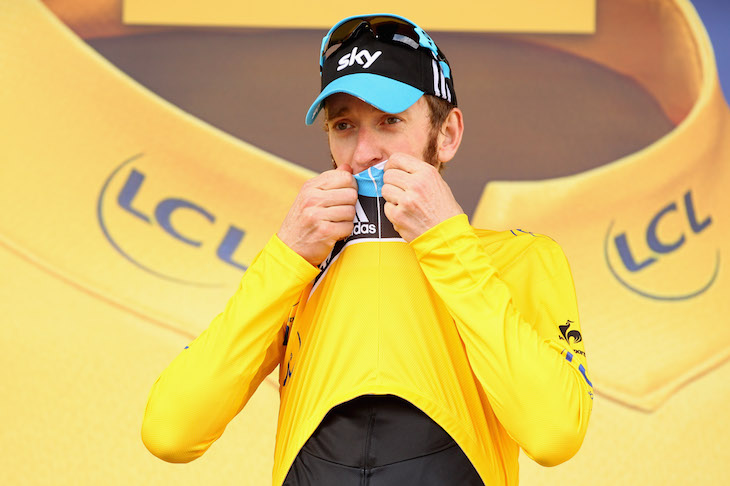The incomparable Roger Bannister, whose passing marks the end of our links with a vanished age of sporting innocence, could have been knighted in 1954, such were his achievements in that year. He was eventually knighted 21 years later, in 1975: he could have been knighted for services to medicine or athletics, or both. We have started to play fast and loose with knighthoods. Bradley Wiggins and David Brailsford were both knighted at the end of 2012, the year of the London Olympics and Wiggo’s epic win in the Tour de France. Not looking such a bright idea now though. Wiggo and Brailsford are perfect examples of the rule that sports people shouldn’t be knighted while still on active duty. It’s just asking for trouble.
Sport has always been about rules and laws; now it seems to be about ‘ethical lines’, too, more particularly the one that Wiggins crossed by getting pumped full of a steroid called triamcinolone just before the 2012 Tour and apparently on several other occasions. This was permitted under something called a ‘therapeutic use exemption’, which is cycling’s equivalent of a sick note. But if you use a sick note at work when you aren’t sick, that is effectively cheating. And if a top cyclist uses a TUE to take triamcinolone and he wasn’t especially sick, isn’t that the same? (Wiggins insists he was prescribed triamcinolone based on medical need but records weren’t kept so we can’t know.)
Wiggins and Brailsford may have played within the rules, but if this stuff is so dodgy why isn’t it banned? That way they wouldn’t have to worry about crossing any ethical line. They have known this is a big problem: when the story about the mysterious ‘jiffy bag’ delivered to Wiggins first started to break, Brailsford offered the Daily Mail’s Matt Lawton an incentive not to publish.









Comments
Join the debate for just £1 a month
Be part of the conversation with other Spectator readers by getting your first three months for £3.
UNLOCK ACCESS Just £1 a monthAlready a subscriber? Log in